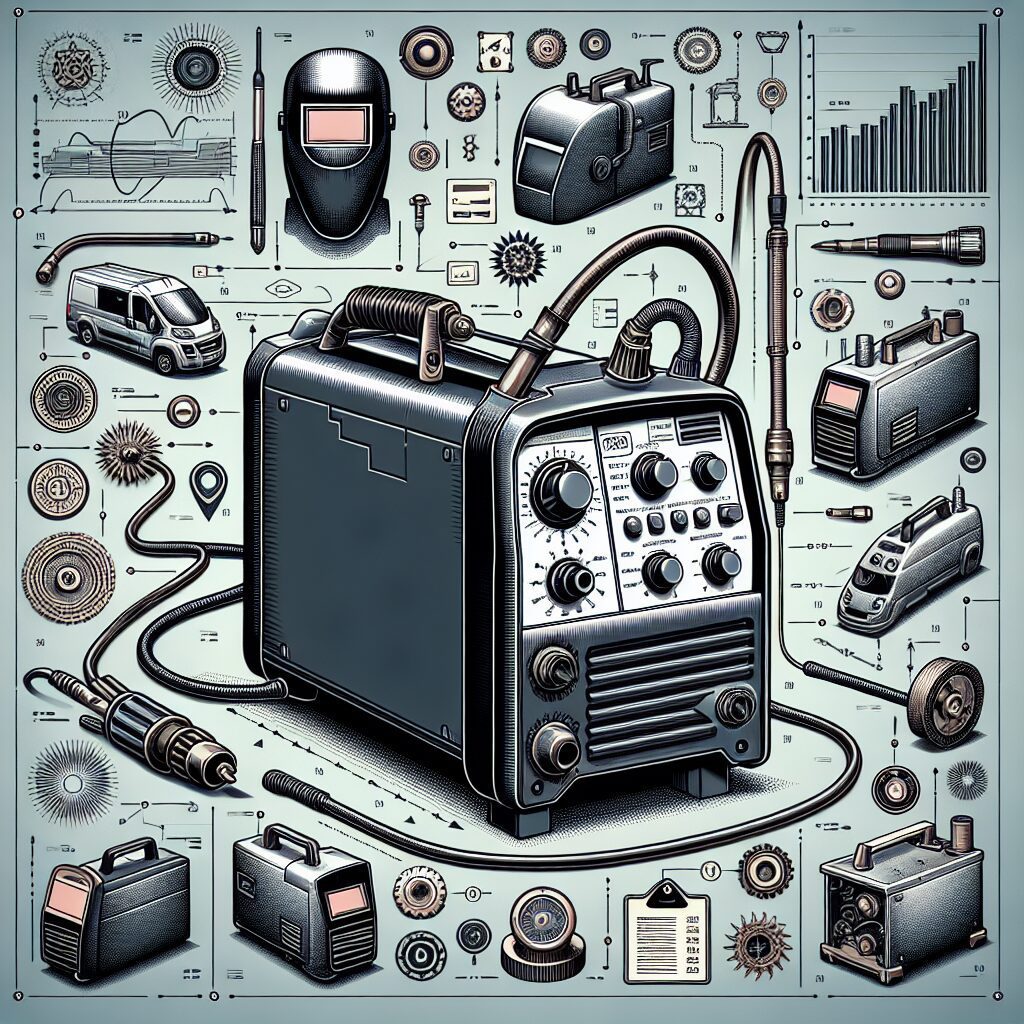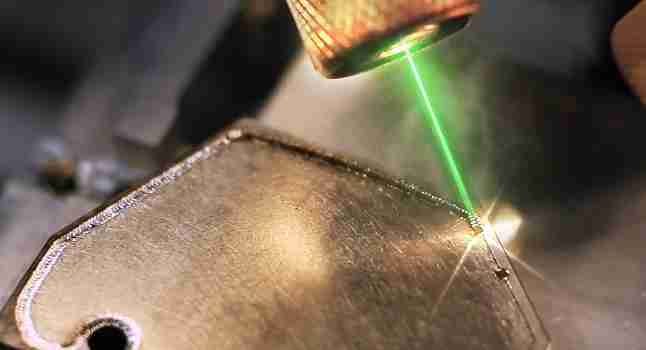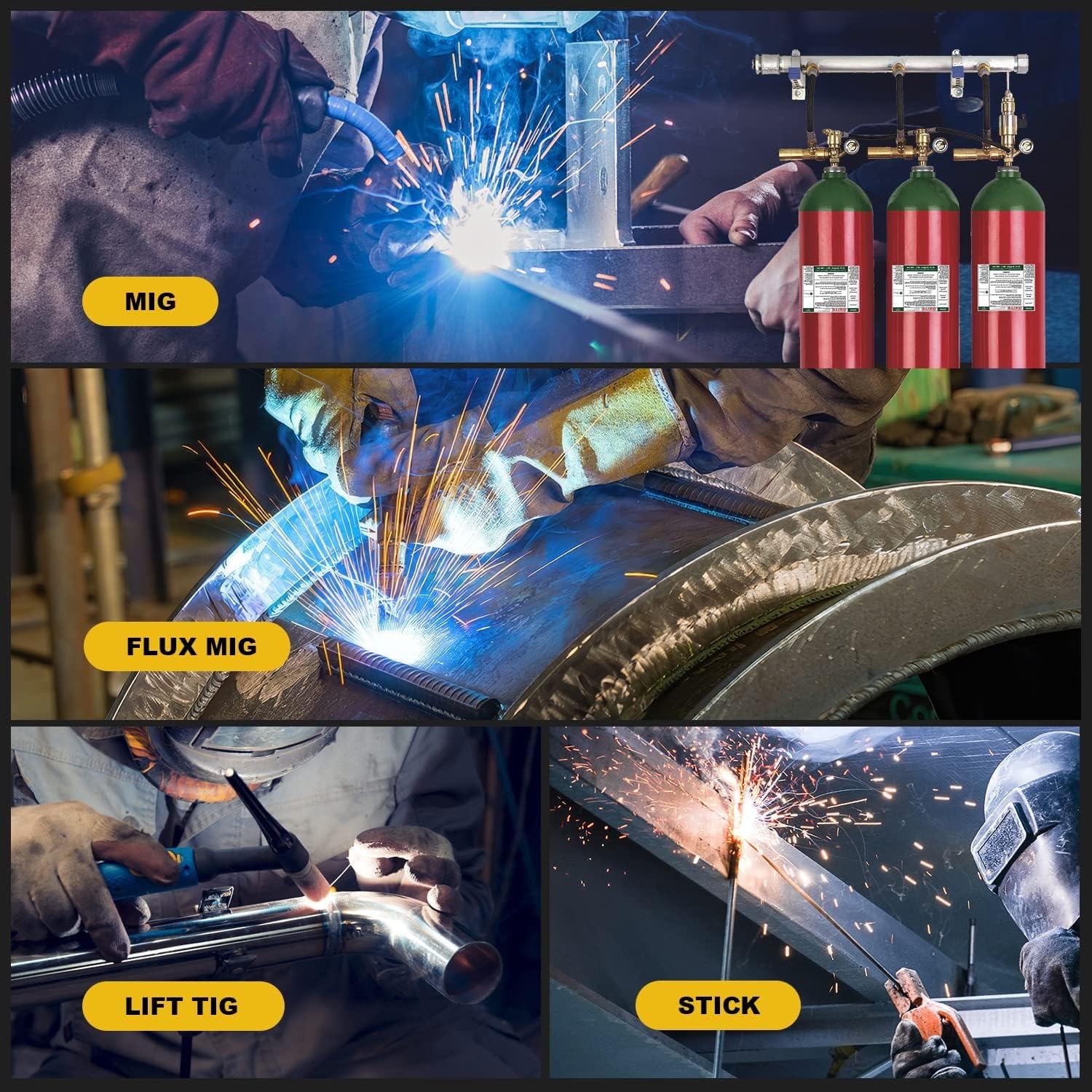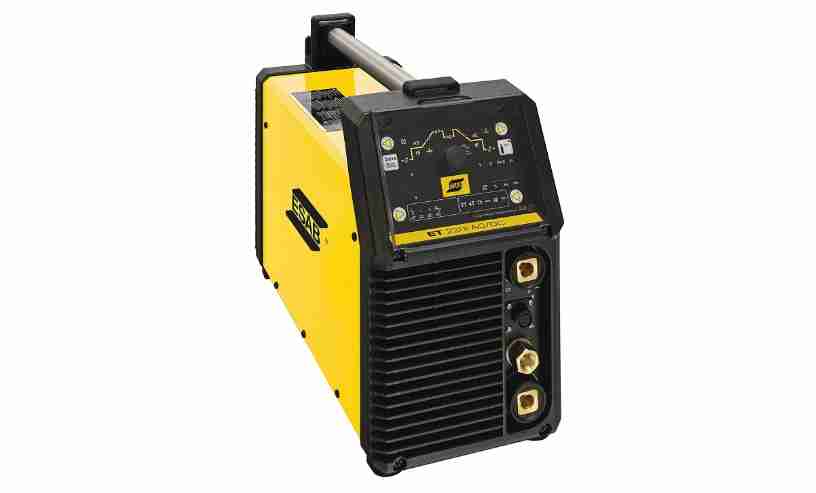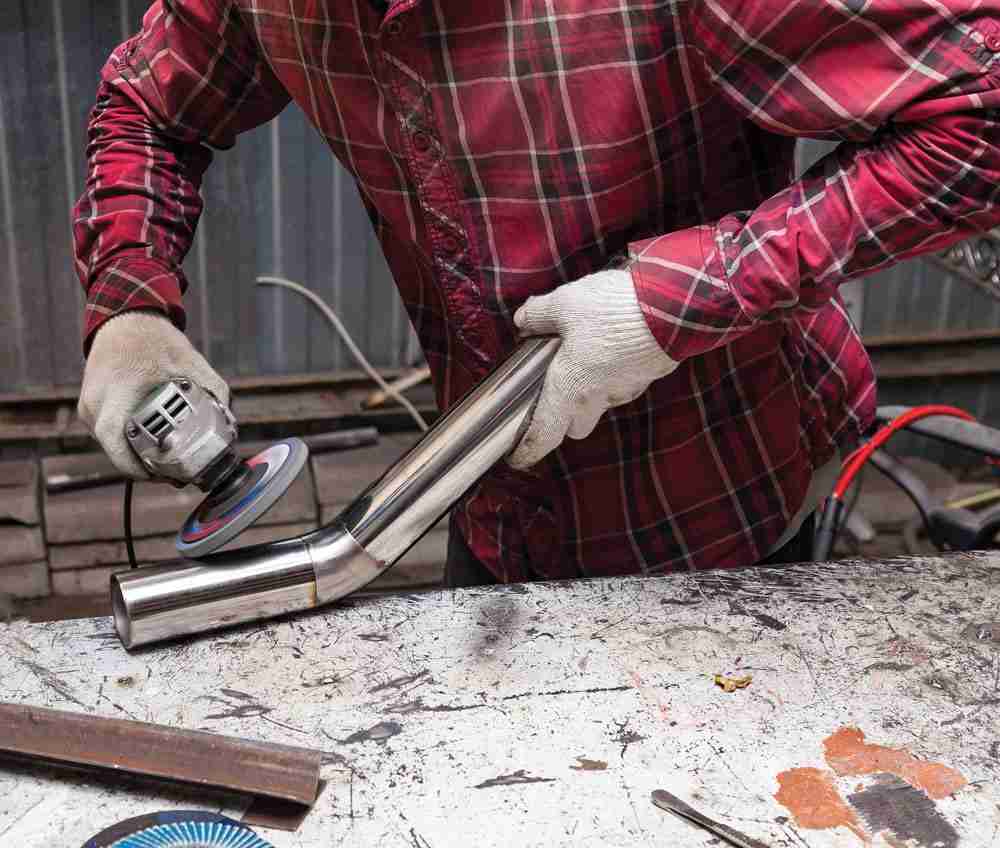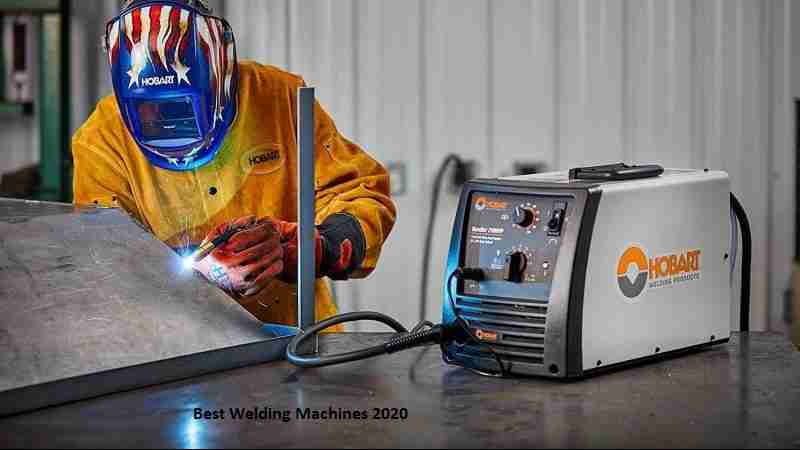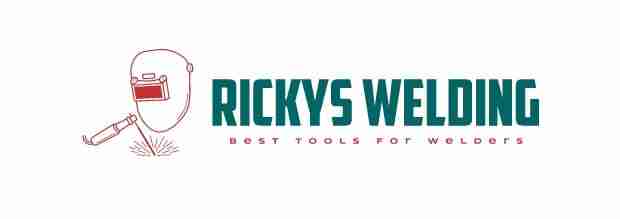If you’ve been thinking about investing in a professional welding machine but have been unsure about the cost, look no further. In this article, we will explore the various factors that determine the price of a professional welding machine. From the type of machine to the features it offers, we’ll break down everything you need to know to make an informed decision. So, whether you’re a seasoned professional or just getting started, get ready to discover the ins and outs of professional welding machine costs.
Factors Affecting the Cost of Professional Welding Machines
When it comes to purchasing a professional welding machine, there are several factors that can greatly affect the cost. Understanding these factors can help you make an informed decision and find the best welding machine for your specific needs.
Quality and Brand
One of the most significant factors that can impact the cost of a professional welding machine is the quality and brand. Welding machines from reputable brands that are known for their high-quality products often come with a higher price tag. However, investing in a well-known brand can give you the assurance of durability, reliability, and performance.
Power and Voltage
The power and voltage capacity of a welding machine also play a role in determining its cost. Welding machines with higher power and voltage capabilities are generally more expensive. It’s crucial to consider the specific requirements of your welding projects to ensure you choose a machine with an appropriate power and voltage rating.
Welding Processes Supported
Different welding processes, such as stick welding, MIG welding, TIG welding, and others, require specific equipment. The cost of a professional welding machine can vary depending on the welding processes it supports. Welding machines that offer multiple welding processes tend to be more expensive due to their versatility.
Duty Cycle and Amperage
The duty cycle and amperage rating of a welding machine impact its cost. Duty cycle refers to the amount of time a welding machine can operate within a 10-minute period before it needs to cool down. Higher duty cycle machines are generally priced higher. Amperage rating defines the maximum output current of the machine, and welding machines with higher amperage ratings are typically more expensive.
Portability and Weight
The portability and weight of a professional welding machine are other factors to consider when assessing its cost. Lightweight and portable machines are often preferred for their ease of transportation and maneuverability. However, these features may come with a higher price compared to bulkier and less portable options.
Additional Features and Accessories
Additional features and accessories can contribute to the overall cost of a professional welding machine. Some welding machines may include features like adjustable wire speed, digital displays, built-in safety features, and more. Keep in mind that while these added features can enhance the convenience and functionality of the machine, they may also increase its price.
Types of Professional Welding Machines
Understanding the different types of professional welding machines is essential when considering purchasing one. Each type has its own unique characteristics and strengths, catering to different welding needs. Here are the four main types of professional welding machines:
Stick Welders
Stick welders, also known as shielded metal arc welding (SMAW) machines, are versatile and popular among welders. They utilize a consumable electrode coated in flux to create an electric arc, which melts the electrode and the base metal, producing the weld. Stick welders are relatively affordable and suitable for various applications, making them a cost-effective option.
MIG Welders
MIG welders, short for metal inert gas welding, employ a welding gun that feeds a continuous wire electrode and a shielding gas to create the weld. MIG welding is known for its versatility, speed, and ease of use. This type of welding machine is commonly used in automotive repairs, construction, and fabrication industries. MIG welders can range in price depending on their power and additional features.
TIG Welders
TIG welders, or tungsten inert gas welding machines, use a non-consumable tungsten electrode and a separate filler material for welding. This type of welding is favored for its precision and ability to produce high-quality welds on various metals. TIG welders are commonly used in applications that require a clean and aesthetically pleasing weld. Due to their advanced technology and precision capabilities, TIG welders tend to be more expensive than other types.
Multi-Process Welders
Multi-process welders, as the name suggests, are capable of performing various welding processes. They offer the versatility of stick, MIG, and TIG welding in a single machine. Multi-process welding machines can be a cost-effective solution for welders who require the flexibility to switch between different welding processes. However, the price of these machines can be higher compared to single-process welders.
Price Range of Professional Welding Machines
Professional welding machines come in a wide range of prices, depending on their features, capabilities, and brand reputation. Understanding the different price ranges can help you set a realistic budget and find a welding machine that meets your needs without breaking the bank.
Low-End Welding Machines
Low-end welding machines are typically budget-friendly options suitable for occasional or less demanding welding tasks. They may lack advanced features and have lower power and voltage ratings compared to higher-end models. However, these machines can still deliver satisfactory results for hobbyists or simple welding projects. Low-end welding machines can range from around $200 to $500, depending on the brand and features.
Mid-Range Welding Machines
Mid-range welding machines offer a balance between affordability and performance. They often have higher power and voltage capacities than low-end options and may include some additional features. These machines are suitable for intermediate-level welders who need more versatility and reliability without making a significant investment. Mid-range welding machines typically range from $500 to $1,500.
High-End Welding Machines
High-end welding machines are designed for professionals and heavy-duty applications. They are equipped with advanced features, higher power and voltage ratings, and superior build quality. These machines offer exceptional performance and durability, making them ideal for experienced welders who demand the best in their work. High-end welding machines can range from $1,500 to several thousand dollars, depending on the brand and capabilities.
Where to Buy Professional Welding Machines
Once you have decided on the type and price range of the welding machine you need, the next step is to find a reliable source to make your purchase. Here are three common avenues for buying professional welding machines:
Welding Equipment Suppliers
Local welding equipment suppliers and distributors are great places to start when searching for professional welding machines. These suppliers typically have a wide selection of machines from different brands and can provide expert advice and support. They can also offer demonstrations and help you choose the right machine for your specific needs.
Online Retailers
Online retailers provide a convenient and accessible option for purchasing professional welding machines. Platforms like Amazon, eBay, and specialized welding equipment websites offer a vast range of machines with detailed descriptions and customer reviews. Shopping online allows you to compare prices, read feedback from other buyers, and have the machine delivered directly to your doorstep.
Auctions and Second-hand Equipment
For those on a tight budget or looking for a good deal, auctions and second-hand equipment can be viable options. Auctions, both online and offline, often feature used welding machines at reduced prices. Additionally, websites and local sellers may offer second-hand machines that are still in good condition. However, it’s essential to inspect the equipment thoroughly and ensure that it meets your requirements before making a purchase.
Renting and Leasing Options
In some cases, renting or leasing a professional welding machine may be more suitable than buying outright. Here are some factors to consider when deciding whether to rent or lease a welding machine:
Benefits of Renting or Leasing
Renting or leasing a welding machine can provide several benefits. Firstly, it allows you to access high-quality machines without making a substantial investment. This can be advantageous if you have a short-term or intermittent welding project. Renting or leasing also provides flexibility, as you can choose different machines depending on the project requirements. Additionally, it saves you from the hassle of maintenance and repair, as those responsibilities usually rest with the rental or leasing company.
Cost Comparison: Buying vs Renting or Leasing
Before deciding whether to buy or rent/lease a professional welding machine, it’s essential to compare the costs. While renting or leasing may seem more cost-effective initially, the long-term expenses should be taken into account. If you anticipate frequent or long-term use of the machine, it may be more economical to purchase it outright. On the other hand, if you have sporadic or short-term welding needs, renting or leasing can save you money in the long run.
Rental Companies and Leasing Providers
To rent or lease a welding machine, you can inquire with local rental companies or welding equipment suppliers. They often offer competitive rates and flexible rental options. Alternatively, leasing providers specialize in long-term equipment leasing and can help you find the most suitable arrangement for your needs. Comparing prices and terms from different rental companies and leasing providers can help you find the best option.
Factors to Consider Before Making a Purchase
There are several crucial factors to consider before making a final decision to purchase a professional welding machine. These factors will ensure that you choose a machine that aligns with your budget, requirements, and intended use.
Budget
Before starting your search for a welding machine, establish a budget that you are comfortable with. This will help you narrow down the options and prevent overspending. Consider not only the initial purchase cost but also other potential expenses like accessories, consumables, and maintenance.
Required Welding Processes
Evaluate the specific welding processes you will frequently perform. Determine whether you predominantly need a stick welder, MIG welder, TIG welder, or a multi-process welder. This will guide you in selecting a machine that can cater to your specific welding needs.
Power and Voltage Requirements
Identify the power and voltage requirements necessary for your projects. This includes considering the type and thickness of the materials you will be welding. Ensure that the welding machine you choose has the appropriate power and voltage output to achieve optimal welding results.
Duty Cycle and Amperage
Consider the duty cycle and amperage requirements that are suitable for your applications. If you plan on welding for extended periods or working with higher amperage settings, opt for a machine with a higher duty cycle and amperage rating. This will prevent overheating and ensure consistent and efficient welding performance.
Intended Use and Applications
Think about the specific applications and environments in which you will be using the welding machine. If you anticipate using the machine in various locations or need to transport it frequently, prioritize lightweight and portable options. Conversely, if you will be working in a fixed workshop, a heavier, more robust machine may be suitable.
Maintaining and Repairing Professional Welding Machines
To prolong the lifespan and maximize the performance of your professional welding machine, regular maintenance and timely repairs are essential. Here are some key aspects to consider:
Regular Maintenance
Follow the manufacturer’s guidelines for regular maintenance tasks such as cleaning, lubricating, and inspecting the machine. Regularly check and replace consumables like electrodes, nozzles, and wire spools to ensure optimal welding performance. Keep the machine in a clean and dry environment to prevent damage from dust, moisture, and other contaminants.
Common Repairs and Replacement Parts
Some common issues with professional welding machines include faulty cables, damaged switches, worn-out electrodes, and malfunctioning regulators. Familiarize yourself with the common repairs associated with your specific machine and the availability of replacement parts. It is advisable to keep spare parts on hand to minimize downtime during repairs.
Professional Repair Services
When faced with more complex repairs or issues beyond your expertise, it’s best to seek professional repair services. Professional technicians who specialize in welding machine repairs have the expertise and tools to diagnose and fix a wide range of problems. They can help resolve issues and ensure that your machine is functioning at its best.
Conclusion
Professional welding machines vary in cost depending on factors such as quality, brand, power, voltage, welding processes supported, portability, additional features, and accessories. Understanding these factors allows for informed decision-making when choosing a welding machine. Stick welders, MIG welders, TIG welders, and multi-process welders are the main types available, each catering to different welding needs. Price ranges for professional welding machines include low-end, mid-range, and high-end options. Considerations such as budget, required welding processes, power and voltage requirements, duty cycle and amperage, and intended use are crucial before purchasing a welding machine. Maintenance and timely repairs are essential to maximize the lifespan and performance of a professional welding machine. With careful consideration of all these factors, you can confidently select the right welding machine for your needs and projects.



